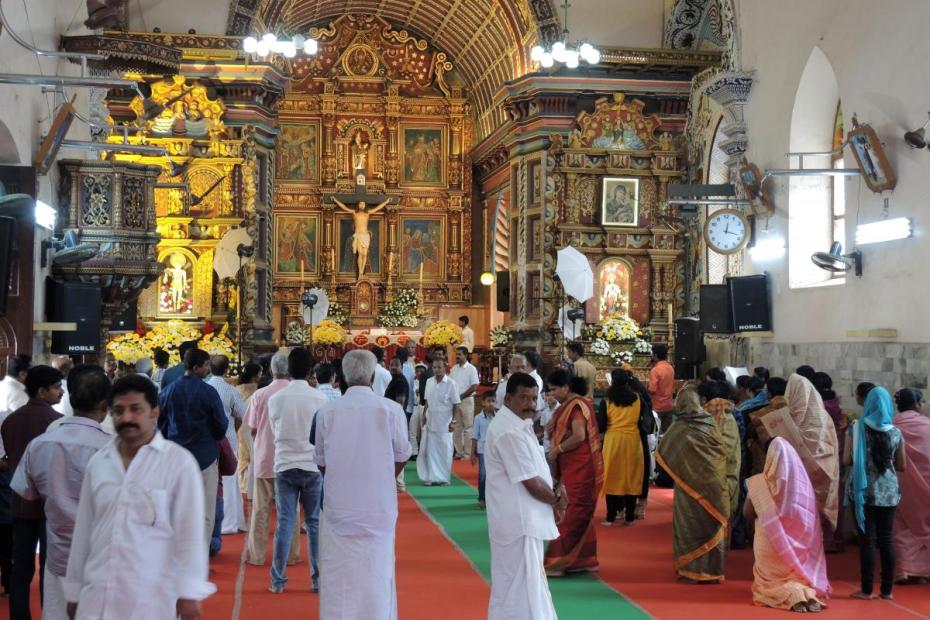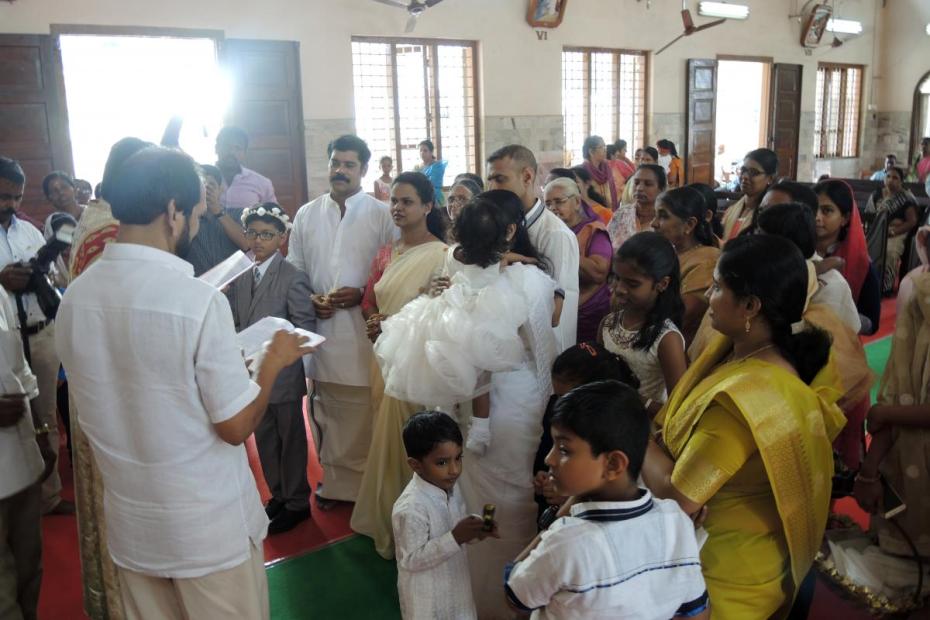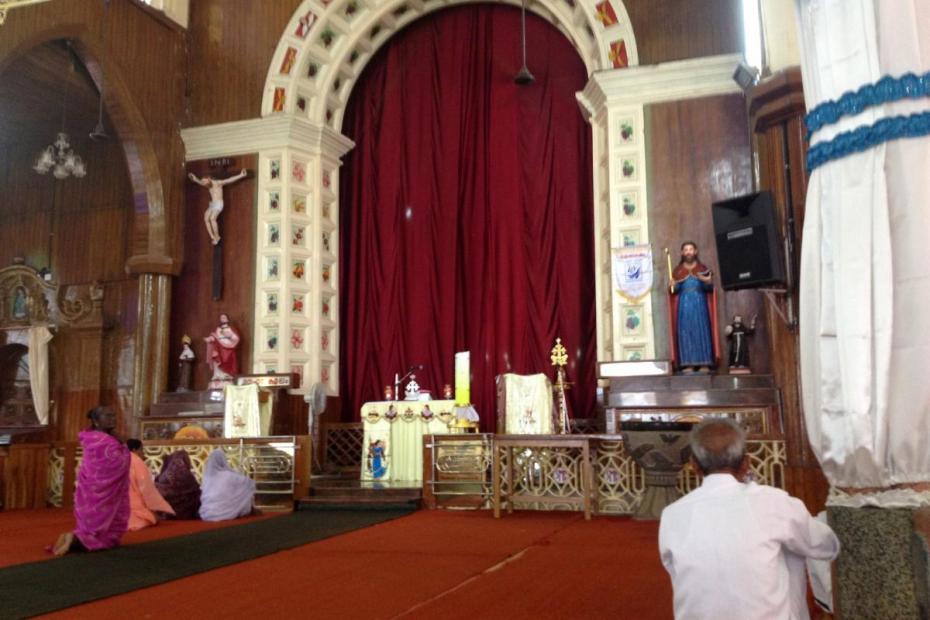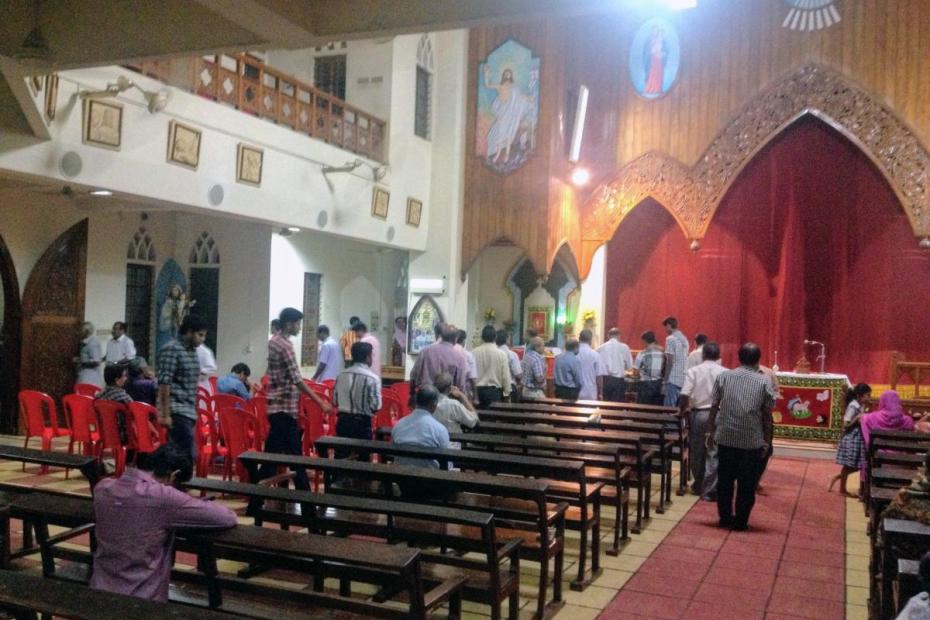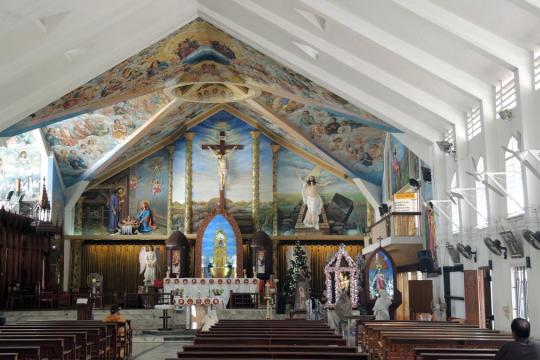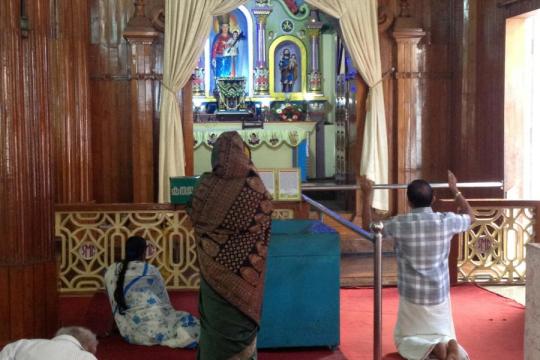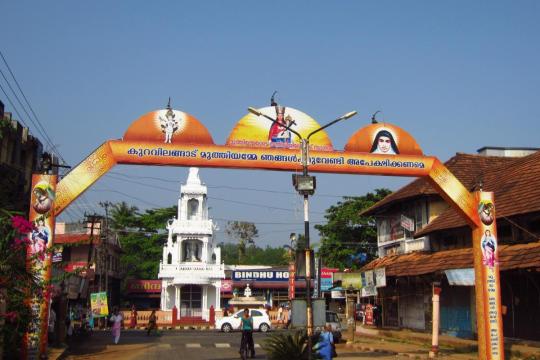The Syro-Malabar liturgy, known as the Qurbānā, or Offering, originates in the Chaldean church in Persia. As such, it differs from the liturgy of the Syro-Malankara church, the other Syrian Catholic church in India.
The liturgical language of the Syro-Malabar Qurbānā is Malayalam, the language of daily life Kerala. The Syro-Malabar church follows its own liturgical calendar.
At Syro-Malabar liturgies, men and women generally separate into different sides of the church. Shoes are left outside of church, and prayer rugs cover the floor. The altar is veiled behind a large red drape that opens after the beginning of the liturgy to reveal the sanctuary, and closes at the end of the liturgy.
Worshipers in Syro-Malabar churches face east when worshiping. Historically, so too did the priest, in the same manner as the Tridentine Latin liturgy, so that the congregation is behind him. After Vatican II, priests in some places began to celebrate facing the people, while others celebrated in the historic fashion. In 1999, in an attempt to unify the celebration of the liturgy, the bishops decreed that during the Liturgy of the Word the priest would face the people, while during the Anophora (Liturgy of the Eucharist) he would face in the same direction as the people, i.e. with his back to them. That decision, which Rome requested to be implemented by 2022, has been resisted in several eparchies (dioceses) and has resulted in great controversy. Some observers claim that it is important to adhere to the ancient traditions of the St. Thomas Christians, while others, both priests and laity, regard prefer a "modern" standard more in keeping with the western church, and are vehemently refusing a change that would have the priest celebrate the Anaphora with his back to the congregation.
The controversy, which was on the verge of bringing about a schism in the Church, resulted in demonstrations in the street and forced the closure of the cathedral and other churches in the diocese of the Church's major archbishop. Papal efforts to mediate the conflict failed several times. In August, 2025, a synod unanimously ratified that allowed priests in that diocese to contiinue to celebrate the liturgy facing the people, provided that each parish celebrate one of the new synod-approved liturgies every Sunday and major feast day.
Holy Qurbana at St. Mary's Forane Church, Kuravilangad, India.
Syro Malabar Holy Mass in Malayalam, June 2009.
